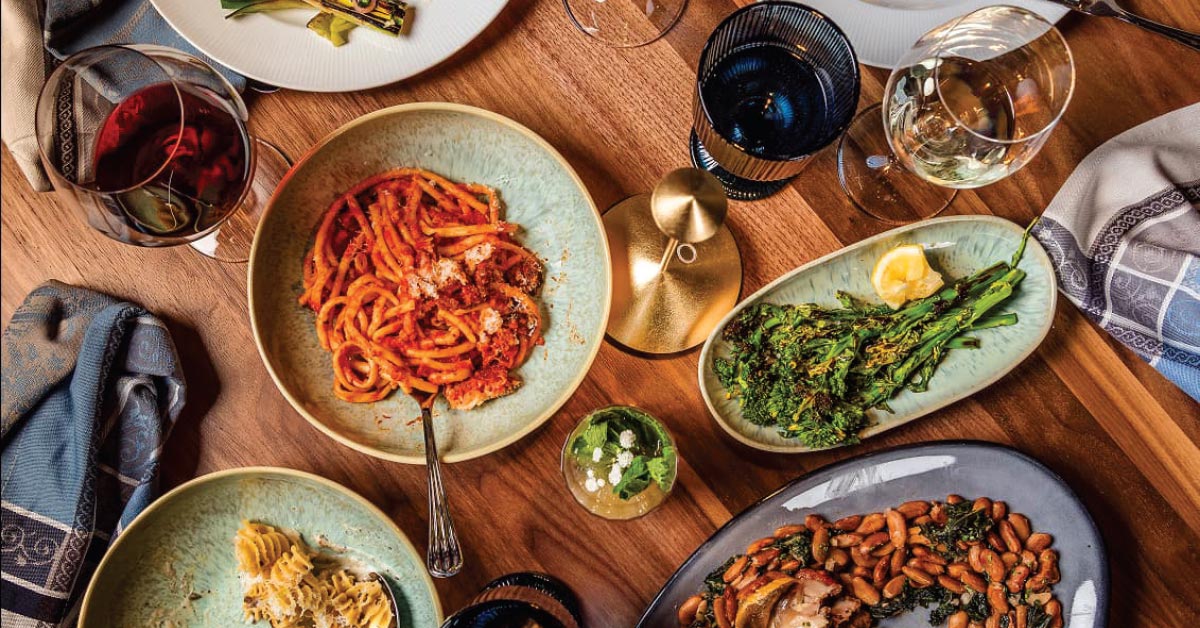With well over 100 wineries in Michigan, and a quest to find a winemaker to talk shop with, where does one begin? It seemed logical to tap into the connections of one of our favorite wine experts in Grand Rapids: Martha’s Vineyard.
Indeed, they had suggestions, and Old Mission Peninsula’s Brys Estate Vineyard & Winery rose to the top. Not only do they have an interesting origin story and many accolades, they also have on staff Coenraad Stassen, Director of Winemaking & Estate Manager, who was eager to talk with us. Here’s that conversation!
Tell me about yourself and how winemaking became an art and passion for you.
I was born on a farm in South Africa with mixed agriculture including wine grapes.
From a young age, I enjoyed helping my dad working in the vineyards. I enjoyed the farm life and freedom it provided. After high school, I worked at a local winery for the harvest season and then attended Elsenburg Agricultural College in Stellenbosch, South Africa.
I spent eight years honing my winemaking skills in South Africa before moving to Northern Michigan in 2003. I still call Michigan home today. I always knew that I did not pick farming and winemaking, but it picked me and that is where the passion comes from. The art part is trial and error, plus a “never give up” attitude that I was born with.
Why did you decide to come to the US and what attracted you to pursue winemaking here?
I wanted to experience other regions and learn new winemaking techniques while I was trying to pursue excellence in crafting South African wines. That led me to applying for an 18-month internship to work on Old Mission Peninsula. One of the deciding factors that led me to Northern Michigan was the ability to produce ice wines. I had read about the process and the wines, but wanted to experience making them for myself.
What does making wine in Michigan entail and how is it different from the process, grapes, and conditions as compared to other places?
Every country, region, and even vineyard has its own unique microclimate that has been shaped over millions of years. Every region has pros and cons for farming and growing wine grapes.
Making wine in Michigan requires you to think outside the box and be practical, but also innovative in your pursuit of making great wines. Some of the biggest differences in how the fruit ripens would be topography, soil composition, sunlight hours in a day, the average temperatures, rainfall, humidity, and disease pressure. Very few vineyard sites are perfect, but each site has the ability to create wine that is unique to that location. That is the reason you can have wineries a few hundred yards apart creating the same wine varietal that taste completely different.
What goes into crafting an award-winning wine?
I think crafting an award-winning wine means something different to each winemaker.
For some, it means creating a wine that brings people together that can be shared around a meal or campfire: A conversation piece of time and place; wine that makes people smile and appreciate the finer things in life.
For other winemakers, it is the pursuit of getting ever closer to crafting wine that reaches 100 points on a well-known critics’s list or wine publication. The journey is similar, but the results are two very different things. That is what makes wine and the people who craft them so amazing.
Do you have a favorite wine that you make? If so, what is special about it?
I enjoy all the wines we produce, and I try to create them all with the same amount of passion and excellence. If I had to pick, then I would say the red wines from our Estate would be among my favorites.
Reds take a little more patience and understanding of viticulture to truly harvest the natural flavors and nuances that each varietal has to offer. Red wines are like creating Picassos. They take time, patience, and the ability to not rush the process—a skill I did not develop until later in my career.
Why do you think wine seems to be gaining popularity lately?
I think people love the idea of wine and how it brings people together. There is a certain mystery surrounding wines and each wine has a story to tell. More vineyards are following the European model of sustainability in farming, preserving the land for the next generation and being stewards of the land, and I think that is something we can all get behind and something we can fall in love with.
I think at this moment it is very important to support our local wineries and to help grow our industry as a whole. The Michigan wines you purchased twenty years ago are not the same wines being created today. We are creating world-class wines in Michigan—wines with a purpose that show our love for farming and grape growing, while preserving our land for future generations.
Want to visit or learn more? Take a drive to 3309 Blue Water Rd, Traverse City, MI 49686 or go online at brysestate.com.





